Traveling in Muslim countries: Today’s trip to Istanbul reminds me of what lures me back to land of Islam
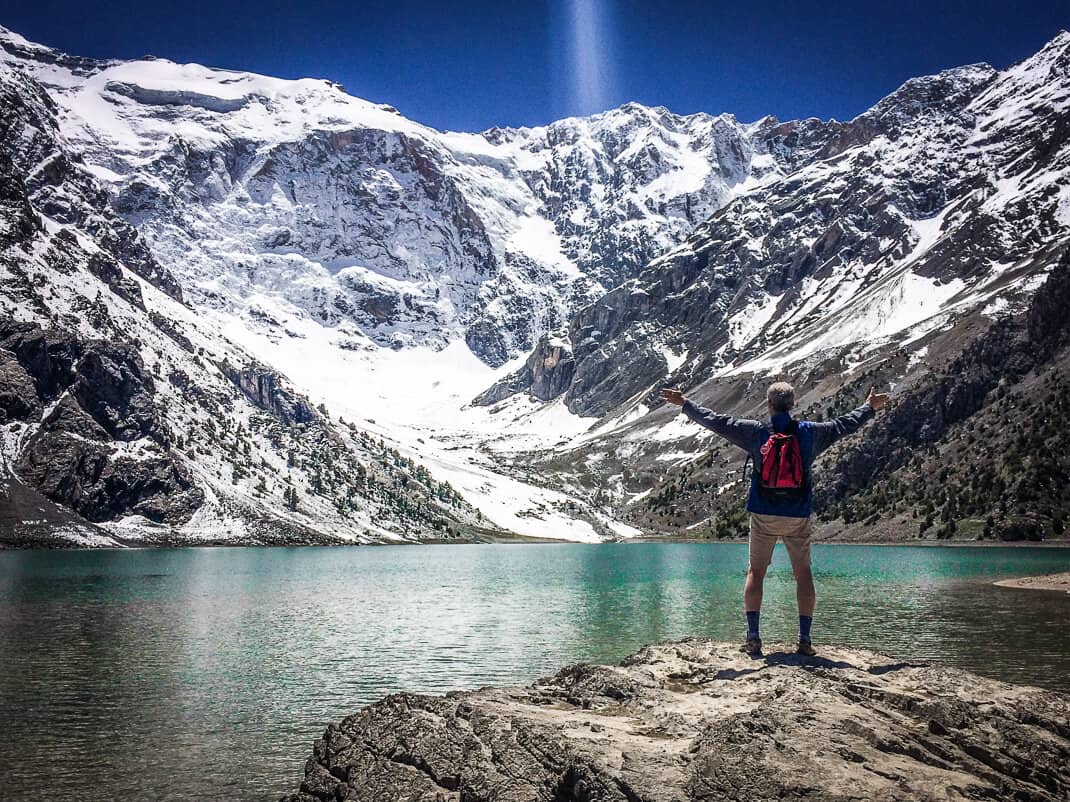
By the time you read this, I’ll be in Istanbul, maybe sitting on a roof looking out over the Strait of Bosphorus while sipping a raki on ice. Or I could be happily lost in the Grand Bazaar doing my entire Christmas shopping. Or I’ll be digging into a succulent pile of grilled meats near my hotel with the Blue Mosque’s minarets off in the distance and the Islamic call to prayer from the city’s 3,000 mosques filling the sky.
17 Muslim countries
I haven’t been to Istanbul in 30 years. However, I’ve traveled in 17 Muslim countries. They’re some of my favorite places to travel and not because of any religious affiliation. It’s for the variety.
Yes, the variety.
The ugly rap Muslim countries get is their religion marks them as all the same. Yet they are as different as their geography. Comparing Saudi Arabia’s culture to Malaysia’s is like comparing dates to coconuts. They all have their unique tastes. They all have their unique qualities that keep luring me back.
Many Americans ask me why in the hell would I travel to these places. The truth? It’s to get as far away as possible from people like them. They paint Islam with one broad brush. They take what they see on the news and assume every Muslim has a death wish and a map of a federal building near you. In actuality, they hate Islamic extremism more than anyone. Why? Because Muslims are the biggest victims.
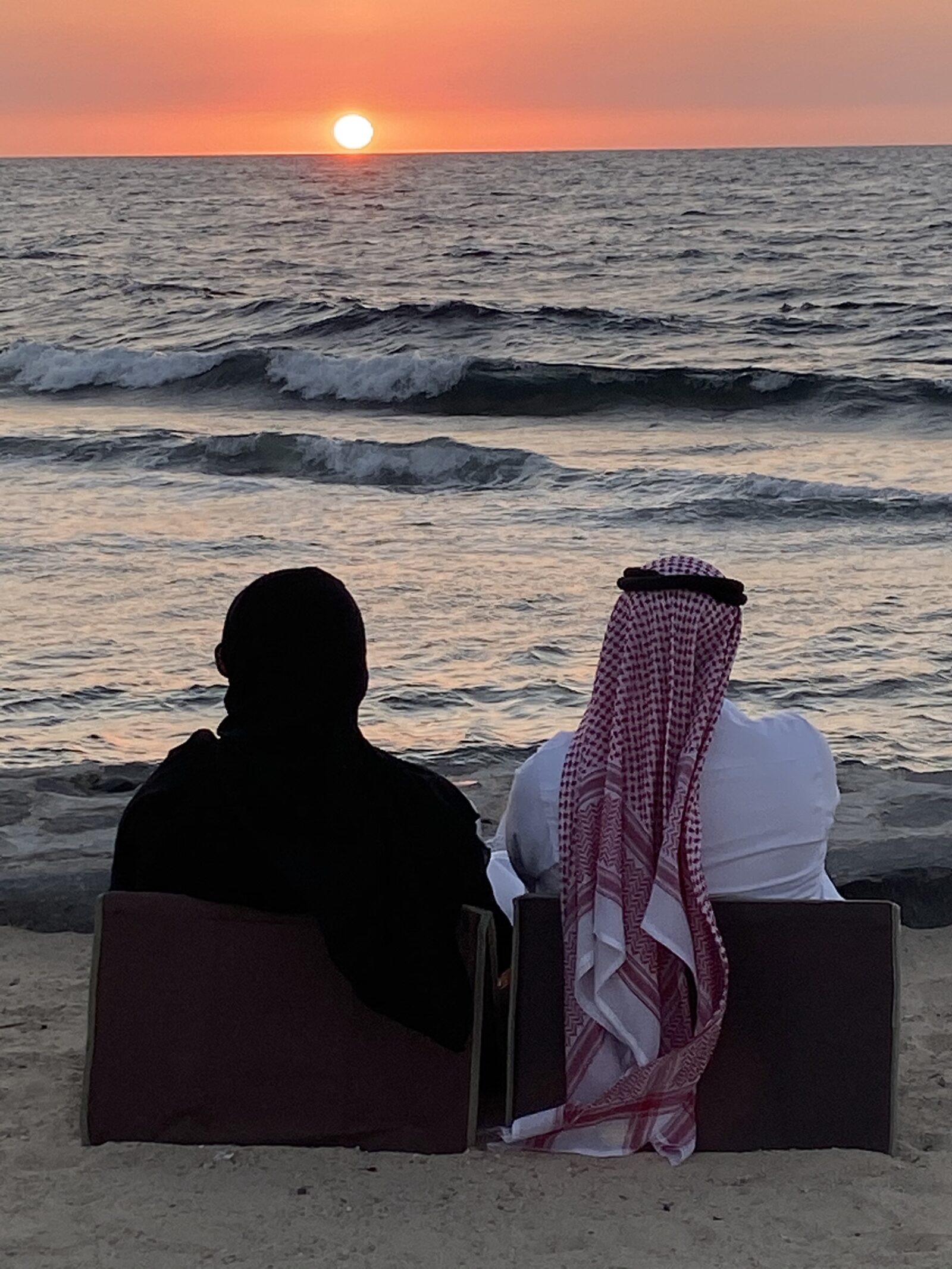
Why go?
As I return to a Muslim country today, here are 10 reasons why I am:
-
- It’s different. One of my favorite pleasures of travel is waking up knowing I’m going to see or learn something for the first time. In Islam, that’s a guarantee. Whether it’s a new mosque or a different food or a piece of history I never knew, it keeps me motivated to explore the second-most populous religion in the world. Hey, it gets me up in the morning.
- The people. Regardless of what redneck Americans who’ve never left the country think, the vast majority of Muslims are remarkably welcoming people. They’re curious about where you’re from and what you think of their country, their food, their sites. Of all the Muslim countries I’ve visited, never once has a Muslim told me how to live my life. I can’t count how many born-again Christians in the U.S. have told me I’ll burn in hell.
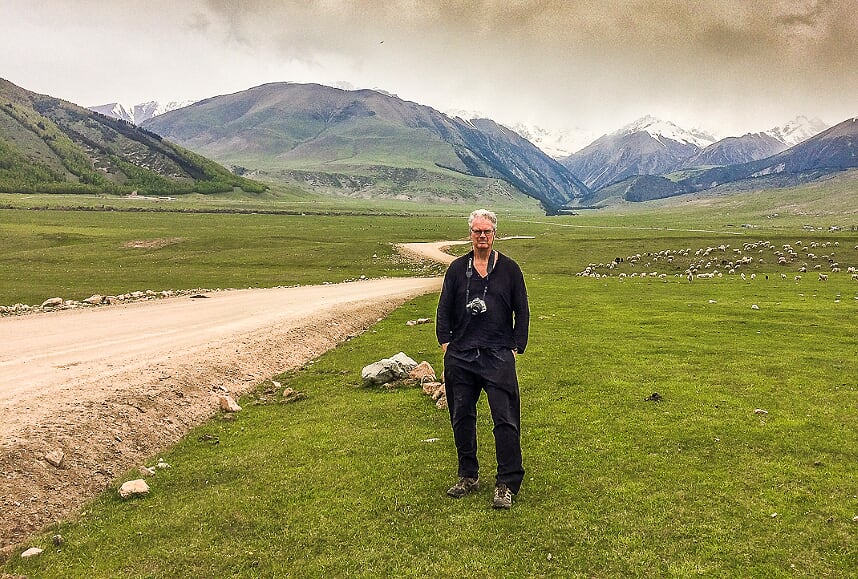
Me in the Georgievka Gorge in Kyrgyzstan. - The beauty. Muslim countries stretch from Northwest Africa to the far corners of Asia. The different landscapes could fill a dozen atlases. Let’s see. There’s the sun setting on the Red Sea from a sandy beach in Jeddah, Saudi Arabia. There’s Registan, a huge square surrounded by three giant blue and yellow, mosaic-laden architectural wonders in Samarkand, Uzbekistan. There is the awesome power but delicate beauty of the Nile River while floating down on a little felucca. Islam is a photographer’s and intrepid traveler’s paradise.
- The food. You don’t need to be adventurous to enjoy cuisine in Muslim countries. Yes, I had water buffalo brains sandwiches in Egypt (Actually, they’re not bad. They taste like fried mushrooms.) But Muslim countries, particularly in the Middle East, appeal to Western tastes. They are heavily into lean, grilled meats, local fresh vegetables and homemade, leavened bread. Sound familiar, anyone? Asian countries like Malaysia and Indonesia dress up rice in a thousand ways. Ever eaten stir fried rice with vegetables in a banana leaf with your hands? Go to little beach towns in Malaysia and try it. It’s healthy, cheap and delicious.
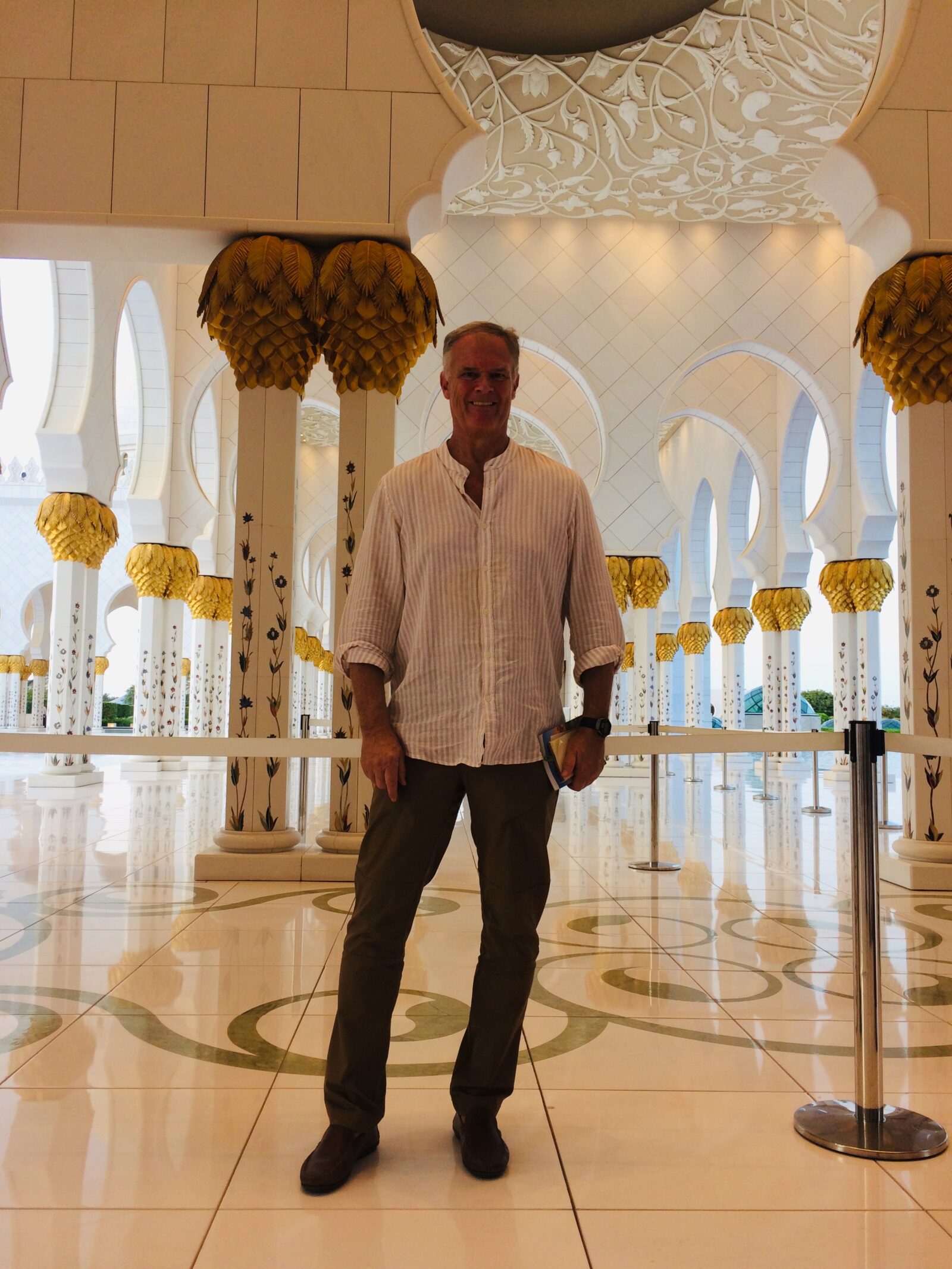
In the Zayed Sheikh Grande Mosque in Abu Dhabi. - The call to prayer. Muslims pray five times a day and while I don’t join them, I love hearing the melodic Muslim prayer launched from hundreds of loudspeakers. It’s exotic. It’s romantic. It’s … it’s … just different. It makes me feel far away from the West, from its trappings and problems, my problems. Some Americans tell me it sounds like cats being tortured. Once I attended – true story – a call to prayer contest in Brunei. Locals took turns reading the Koran in a concert hall filled with people, including the Sultan of Brunei. I’m not into music, but I could’ve listened to that all night.
- The architecture. The soft, gentle curve of a mosque’s domes surrounded by narrow, pointy minarets have such perfect symmetry. Get closer and see the innate carvings on the walls then go inside to see interior decorating that belongs in museums. But it’s more than mosques. I didn’t like Dubai but staring up at the 828-meter Burj Khalifa, the world’s tallest building, made me dizzy. Oh, have you heard of Egypt’s Great Pyramids? Never mind that many Cairo buildings are crooked. More than 4,500 years ago, somehow, mankind’s earliest architects built perfectly symmetrical structures. See them for the first time at the light show and get the Wow! factor.
- The history. Cross a border, any border, and you enter a completely different world with a different past. Go to Tajikistan and read about the remarkable Samanid dynasty and its collection of scientists and writers before their time. Then cross the border into Uzbekistan and see the palaces built from the wealth as a trade center on the Silk Road. In my first trip to Turkey, I learned Mustafa Ataturk became the father of modern Turkey by steering it toward Western principles rather than Eastern in the 1920s and ‘30s. It’s why the Turkish I’ll see this week will be in the Roman alphabet instead of Arabic.
- The costs. Many Muslim countries are poor and they’re priced for the locals more than tourists. I travel great in Indonesia for very little. The same for Tunisia and Morocco. I spent a month in Central Asia and ate wonderful meals for under $10. I had good rooms for under $30. It’s not always the case. (i.e. Dubai.) But getting there by bus from Abu Dhabi was only $12. Of course, I’m writing this after my last trip abroad was to Copenhagen where one dinner cost me more than I once spent in two weeks in Egypt.
- The shopping. Yes, I like to shop. My apartment in Rome is filled with everything from incense burners from Saudi Arabia to gold-covered books from Kyrgyzstan to wood carvings from Lebanon. It looks like a really poorly organized museum. Hanging on my wall in Denver, my previous home, was a kris, a ceremonial dagger, from Indonesia. Who needs guns when you have a knife that can cut a piece of notebook paper? And yes, shopkeepers in Muslim countries like to bargain. Try that in a jewelry store in Zurich.
- The weather. I don’t care about weather but I know travelers do. I’ll throw this out there. Look at a map of Muslim countries. North and West Africa. Middle East. Central Asia. Southeast Asia. Most Muslim countries are near the equator. Most Muslim countries are warm. When Islam spread from Mecca following trade routes in the 7th century, they didn’t have to go far to find new cultures to convert. Many Muslim countries such as Tunisia, Malaysia and Indonesia, have beautiful beaches at a fraction the cost of the West. But avoid Saudi Arabia in July.
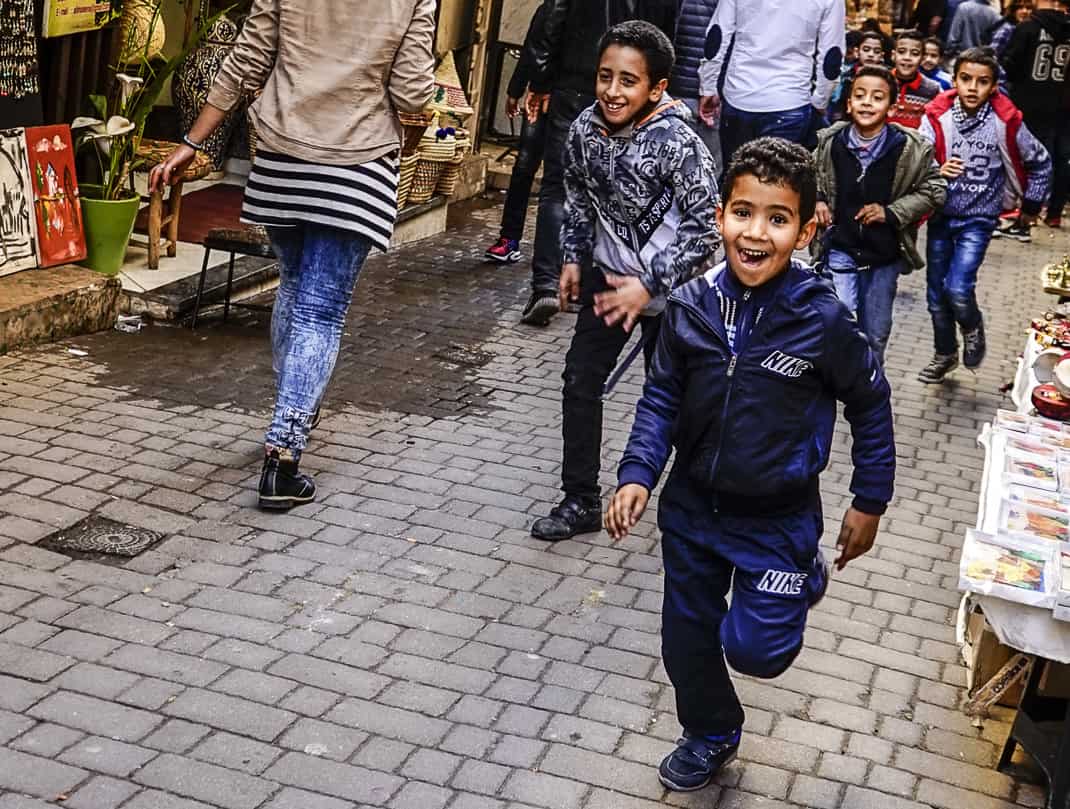
Muslim country traveling tips
For those thinking of traveling to a Muslim country for the first time, here are a few tips:
- Research clothes customs. Mosques everywhere require women to cover their head and legs. Men must wear long pants. Always remove your shoes before entering. Outside of mosques customs vary depending on the country. It is not required for women to cover their head everywhere. It never was a law in Saudi Arabia but women should do it out of respect for that culture. In Turkey and the capitals of North Africa such as Tunis and Cairo, women’s outfits would look appropriate in the streets of Paris and Milan.
- Check prayer times for mosques. If you want to visit a mosque, do not go during prayer times. It’s for Muslims only, especially on Fridays. Also, some famous mosques may be crowded. When I visited the Sheikh Zayed Grand Mosque in Abu Dhabi, I was in a long line that snaked for hundreds of meters although it moved quite quickly.
- Respect Ramadan. The dates for the Islamic period of fasting, depend on the sighting of the crescent moon. This year it began Thursday and will continue for four weeks. During Ramadan, Muslims do not eat or drink from sunrise to sunset. While restaurants will remain open in nearly all countries, do not eat or drink in public in front of fasting locals. In fact, join the fast yourself for a couple of days. The locals will love it.
-

Walking along the Corniche in Beirut. Photo by Marina Pascucci
- Learn the local language. The best way to respect a culture is through language. Don’t bother taking lessons. Just learn words for survival: Where is …? How much …? I would like … Thank you. In Tunisia and Morocco, French is a second language. I found if I spoke a few words of Arabic instead of the more commonly used French, the locals beamed.
- Never denigrate the Prophet Mohammad and be careful criticizing the government. While some Muslim countries such as Malaysia and Indonesia have free speech, NO country will tolerate criticizing the Prophet Mohammad, the founder of Islam. It’s punishable by imprisonment or worse. While all Muslim countries claim they are democracies, some do not have free speech. At all. Saudi Arabia has made great strides with human rights for women, but its policies on free speech are Stalinist. It’s the same with the UAE where a friend from Rome lived and would not grant me an interview when I visited. He didn’t want to be deported. A contact in Saudi Arabia pulled me aside outside a restaurant in Jeddah after we discussed politics and told me, “John, be careful what you ask here. There are people around, cameras everywhere. I couldn’t talk about the Crown Prince in there.”
- No drugs. This seems fairly obvious yet I still hear of people buying drugs in Islamic countries. On my first trip to Morocco in 1978, drug dealers would sell you drugs, rat you out to police who’d arrest you and give the drugs back to the dealer. Morocco is the world’s leading exporter of cannabis and while bills proposing the legalization have failed, Morocco’s Criminal Code states that penalties for drug offenses go up to 30 years in prison and a fine of up to €60,000. Although those are rare, why take a chance when just seeing Morocco is a big enough high?
- Bargain hard. While bargaining in bazaars, it’s hard to insult a shopkeeper with a price. It’s all a game. Get the cost of an item you want. You say, “That’s a donkey price.” Offer half. He says, “That’s a donkey price.” He drops his price 20 percent; you up yours 20 percent. Make sure you enter the negotiations knowing the price you’re willing to pay. If he doesn’t meet it, walk away. Often they will cave. If not, try elsewhere. And if he does meet it, pay it. I once backed out of a deal for a copper plate in Morocco and the shopkeeper pulled a machete on me.
-

A mosque in Brunei’s Water Village.
I hope this helps. I will continue visiting Muslim countries and have Oman, Azerbaijan and Turkmenistan on my bucket list. In the meantime, I’ll enjoy Istanbul’s doner kebabs, views of the Bosphorus and a Turkish bath.
Guvenli seyahat (Safe travels).


March 28, 2023 @ 2:47 pm
We now have a couple of doner kebab restaurants in Metro Detroit. Memo to everyone: if you see one, eat it.
Jeez. John writes an entire alluring and informative essay, and all I respond to is lunch.
Ramadan Mubarak, compadre.
April 4, 2023 @ 1:44 pm
Thanks, Neal. Read my blog next week about Turkish cuisine. I was very disappointed. It was like going to Detroit to watch the Tigers and getting the Mud Hens instead.
March 29, 2023 @ 5:35 am
Great insight thanks John.
April 4, 2023 @ 1:43 pm
Thanks, Robert. Get the email I sent you on your birthday?